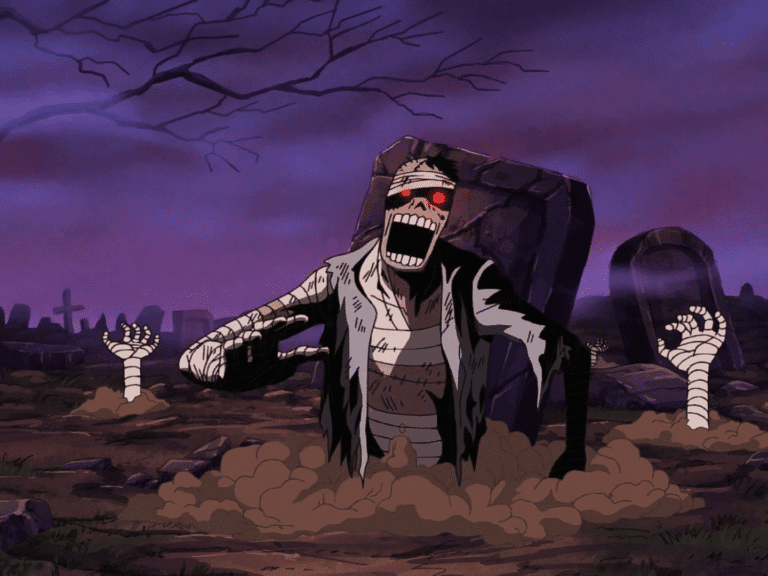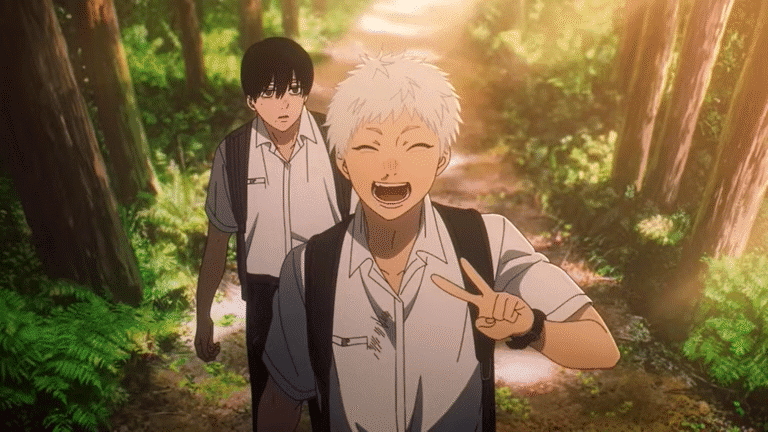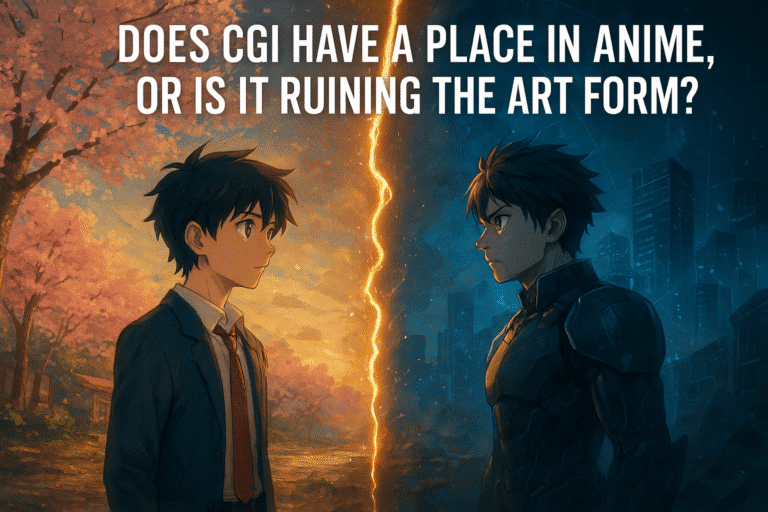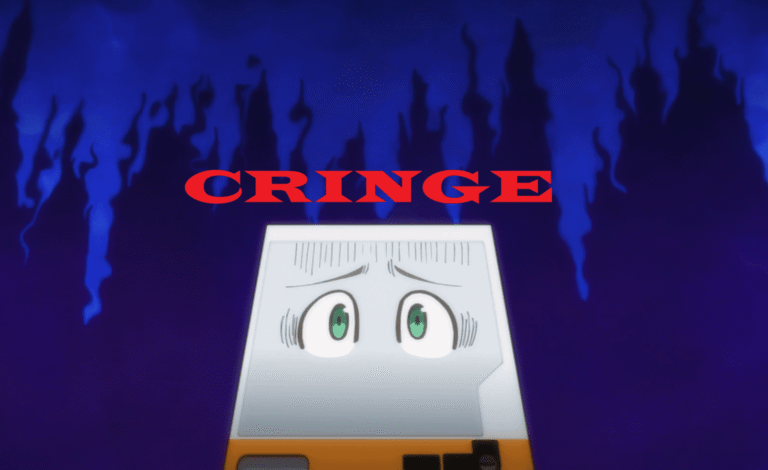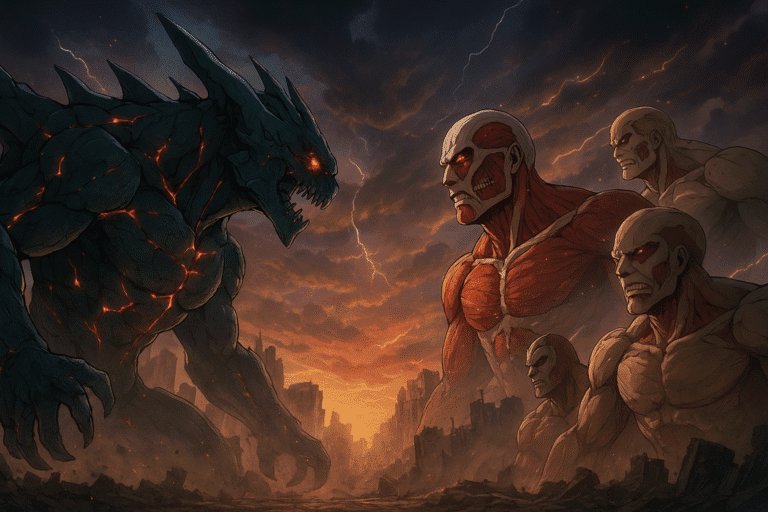Neon Genesis Evangelion – Review and Plot Explained
Neon Genesis Evangelion (1995), created by Hideaki Anno, is a landmark anime series that redefined the mecha genre and pushed the boundaries of psychological storytelling in animation. It blends science fiction, psychological drama, philosophy, and religious symbolism into a deeply personal and emotionally complex narrative.
At face value, it’s about teenagers piloting giant robots to save Earth from monstrous beings called “Angels.” But beneath the surface, it’s a harrowing exploration of depression, trauma, and the human condition.
Review:
Pros:
- Emotional depth: The characters, particularly Shinji Ikari, are portrayed with raw psychological realism. Their flaws, anxiety, and self-doubt make them feel painfully human.
- Symbolism and themes: Evangelion is rich with Judeo-Christian symbolism, existential questions, and Freudian psychoanalysis. These are not always meant to be decoded literally but serve to evoke emotional and philosophical weight.
- Soundtrack: Shiro Sagisu’s score is haunting, memorable, and perfectly matched to the show’s moods—from chaotic action to existential dread.
- Visuals: The animation remains impressive, especially in its daring use of abstract visuals, silence, and minimalism in later episodes.
Cons:
- Pacing and coherence (especially near the end): Episodes 25 and 26 famously abandon the narrative in favor of abstract, internalized monologue sequences. Many viewers find this jarring or confusing.
- Lack of exposition: Evangelion often hints at deeper lore without ever clearly explaining it, leading to widespread confusion.
- Depressing tone: The show deals with deep psychological and emotional pain; it can be uncomfortable, especially for viewers seeking action or conventional storytelling.
Verdict:
★ ★ ★ ★ ★ (5/5, if you’re ready for it)
Evangelion isn’t just a story—it’s an experience. Challenging, flawed, brilliant, and unforgettable.
Confusing Plot Points Explained:
1. What are Angels?
- Angels are beings sent by a god-like force (linked to the entity known as Adam) as part of a cycle of divine evolution. They’re not necessarily “evil,” but rather a different evolutionary path from humanity.
- Humanity, descended from Lilith (another god-like being), and Angels (descended from Adam) are rival “seeds of life.”
- The conflict between them is about which species gets to inherit Earth.
2. What is the Human Instrumentality Project?
- A plan to forcibly merge all human souls into one collective consciousness to eliminate pain, loneliness, and individuality.
- It’s championed by the shadowy organization SEELE, who believe individuality causes human suffering.
- Gendo Ikari, Shinji’s father, wants to use it for personal reasons—to reunite with his dead wife, Yui.
3. Rei Ayanami (Background & Origins)
- Clone created from Yui Ikari’s DNA (Shinji’s mother)
- Contains part of the soul of Lilith, one of the primordial beings in the Evangelion universe
- There are multiple versions of Rei—she is not a singular, natural-born person
- Her identity and existence are central to the Human Instrumentality Project
4. Who is Kaworu Nagisa?
- Kaworu is the 17th Angel (Tabris), but also appears as a human. His bond with Shinji is deep and sudden, which has led to both romantic and symbolic interpretations.
- He chooses to let humanity live, allowing Shinji to kill him. This moment is pivotal to Shinji’s emotional development.
5. Misato and Shinji’s relationship?
- In Episode 25 (TV), Shinji’s inner mind suggests he’s confused about Misato’s role — whether she is a mother, sister, or lover — showing his inner psychological confusion rather than reality.
- In “The End of Evangelion”, when Shinji is at a low point, Misato kisses him on the lips (which may spark romantic/sexual tension between them).
- But importantly: the show does not present a romantic relationship — it just acknowledges that Shinji is confused and searching for love in any form, even if that form is unhealthy.
6. Why is Shinji so hated/loved?
- Shinji is not a traditional hero. He’s anxious, self-loathing, and often paralyzed by fear. But that’s the point—he’s a painfully accurate portrayal of depression and alienation.
- Some fans see him as realistic and brave; others see him as whiny or passive.
Episodes 25 & 26 – The Original TV Ending
After Episode 24 (Kaworu’s death), the show shifts away from external battles and shifts entirely inward.
What Happens (Subjectively):
- These episodes depict Shinji’s internal psychological struggle during the start of the Human Instrumentality Project.
- The animation becomes minimalistic, abstract, and often surreal: crude sketches, empty backgrounds, reused footage, and dialogue overlapping internal monologues.
- We see fragmented glimpses into the minds of Shinji, Rei, Asuka, and Misato, all wrestling with their sense of identity, trauma, and the fear of rejection.
Key Ideas:
- Instrumentality is the process of merging all human souls into one, dissolving the boundaries between self and other.
- Shinji is offered the chance to give up his individuality and pain — but that would also erase his existence as a separate person.
- In the final moments, Shinji realizes that while pain and rejection are part of life, they also give it meaning.
- The final scene is Shinji standing in a white void, surrounded by the other characters, who clap and say “Congratulations!” — a symbolic representation of his self-acceptance.
Interpretation:
- It’s not a literal depiction of what’s happening in the real world. Think of it as Shinji’s mindscape — the “soul” of the Instrumentality process.
- The world may be ending outside, but what matters here is Shinji’s choice to exist as an individual.
The End of Evangelion – The “Real” Ending
This 1997 film serves as a companion and cinematic counterpart to episodes 25 & 26, showing what’s happening in the physical world during Instrumentality.
What Happens (Physically):
- SEELE invades NERV to force the Human Instrumentality Project.
- Asuka fights off the Mass Production EVAs but is eventually killed in a brutal scene.
- Shinji is emotionally broken and retreats further inward.
- Gendo tries to initiate Instrumentality using Rei, but she rejects him and joins with Lilith instead.
- Rei/Lilith/Unit 01 begin merging all human souls into one – the “Third Impact.”
- As the world dissolves, we see apocalyptic visuals: death, rebirth, cosmic merging, and visual metaphors for the collapse of the ego and self.
What Happens (Spiritually/Emotionally):
- The film now mirrors the psychological journey shown in the last two episodes, but with raw, visceral imagery.
- Shinji is literally given the power to reshape the world — to remain in a unified, pain-free consciousness with all humanity, or return to individual existence, with all its loneliness and struggle.
The Final Choice:
- Shinji rejects Instrumentality. He chooses to return to a world of individuals — where people can hurt each other, but also love and understand one another.
- The world is reborn.
- In the haunting final scene, Shinji awakens on a ruined beach. Asuka lies beside him — seemingly the only other person who has returned.
- He looks at her… then strangles her. But she caresses his face. He stops.
- She whispers the final line of the film: “Kimochi warui” (気持ち悪い) — roughly, “I feel sick” or “How disgusting.”
What Does It All Mean?
Dual Endings, Same Core:
- TV ending: internal realization
- Movie ending: external consequence
- Both show Shinji rejecting escapism (Instrumentality) and choosing a painful, imperfect life as an individual.
“Kimochi warui”?
- Asuka’s cryptic line is open to interpretation:
- A reaction to Shinji’s strangling (a literal “gross” moment).
- Or to waking up in a ruined world and realizing she must face life again.
- Or a reflection of the entire human condition: “It’s sickening… but it’s real.”
Final Thoughts
Neon Genesis Evangelion is a meditation on what it means to be alive, to be human, and to suffer. It’s about facing yourself, your pain, your fear of rejection—and deciding whether to open up or shut down. The last two episodes and The End of Evangelion don’t just conclude a story — they present a psychological test for the viewer: Do you embrace reality, with all its pain and beauty, or retreat into comforting illusion. Evangelion leaves you in a place of ambiguity, discomfort, and ultimately… reflection. That’s what makes it so unforgettable.
It won’t spoon-feed answers. Instead, it dares you to question why you’re asking in the first place.
Image credit Gainax, Tatsunoko Production



